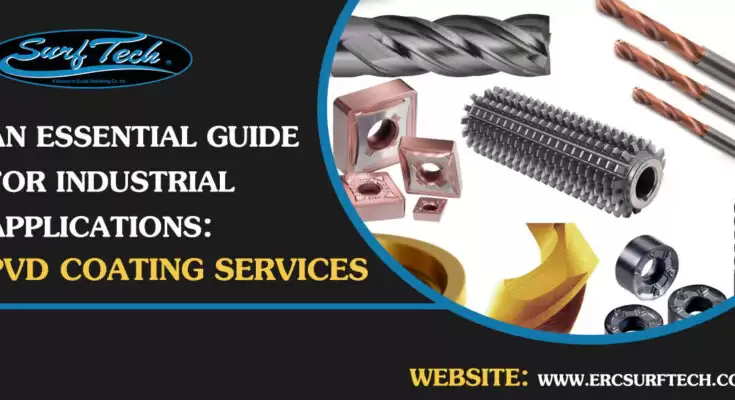PVD coating, or Physical Vapor Deposition coating, is a popular surface treatment process that involves the deposition of a thin film onto a substrate using a vacuum chamber. PVD coating services are widely used in various industrial applications to enhance the surface properties of different materials, including metals, plastics, ceramics, and glass. This guide provides an overview ofPVD coating services, including its benefits, types, applications, and considerations.
Benefits of PVD Coating Services
Here are too many benefits of PVD coating that makes it preferable when it comes to coating. PVD coating services offer numerous benefits, including:
- Wear Resistance:PVD coatings provide excellent wear resistance to the substrate, improving the lifespan of the material.
- Corrosion Resistance:PVD coatings offer high corrosion resistance, making it ideal for materials that are exposed to harsh environments.
- Aesthetic Appeal:PVD coatings provide an attractive appearance and can be used to create different colors and finishes.
- Chemical Resistance:PVD coatings offer high chemical resistance to various substances.
Types of PVD Coating Services
There are different types of PVD coating services, including cathodic arc deposition, sputtering, and electron beam evaporation.
- Cathodic Arc Deposition:This process involves the use of an electric arc to evaporate the coating material, which then condenses onto the substrate.
- Sputtering:In this process, a high-energy ion beam bombards the coating material, causing it to sputter and deposit onto the substrate.
- Electron Beam Evaporation:This process involves the use of an electron beam to evaporate the coating material, which then condenses onto the substrate.
Applications of PVD Coating Services
PVD coating services are used in various industrial applications, including the automotive industry, aerospace industry, medical industry, and tooling industry.
- Automotive Industry:PVD coatings are used to enhance the surface properties of automotive parts, such as engine components, wheels, and trim.
- Aerospace Industry:PVD coatings are used to improve the wear and corrosion resistance of aerospace components, such as turbine blades and aircraft parts.
- Medical Industry:PVD coatings are used in the medical industry to improve the biocompatibility and corrosion resistance of medical implants.
- Tooling Industry:PVD coatings are used in the tooling industry to improve the wear resistance and durability of cutting tools, molds, and dies.
Considerations for PVD Coating Services
Before selecting PVD coating services, there are several considerations to keep in mind, including:
- Material Compatibility:PVD coatings may not be compatible with all materials. Therefore, it is essential to determine the compatibility of the coating material with the substrate.
- Coating Thickness:The thickness of the PVD coating should be carefully selected based on the intended application and the material properties.
- Coating Uniformity:PVD coatings should be uniform and consistent to ensure the desired surface properties.
- Surface Preparation:Proper surface preparation is essential to ensure that the PVD coating adheres well to the substrate.
Conclusion
In conclusion, PVD coating services offer numerous benefits and are widely used in various industrial applications. By understanding the different types of PVD coating services, their applications, and considerations, you can select the most appropriate PVD coating service for your specific needs.
If you would like to assist on PVD Coating from aPVD Coating Company, please contact us atSurftech Incwith further information. Call us +1-440-275-3356or an email us onncotton@ercsurftech.comfor free quotations.
